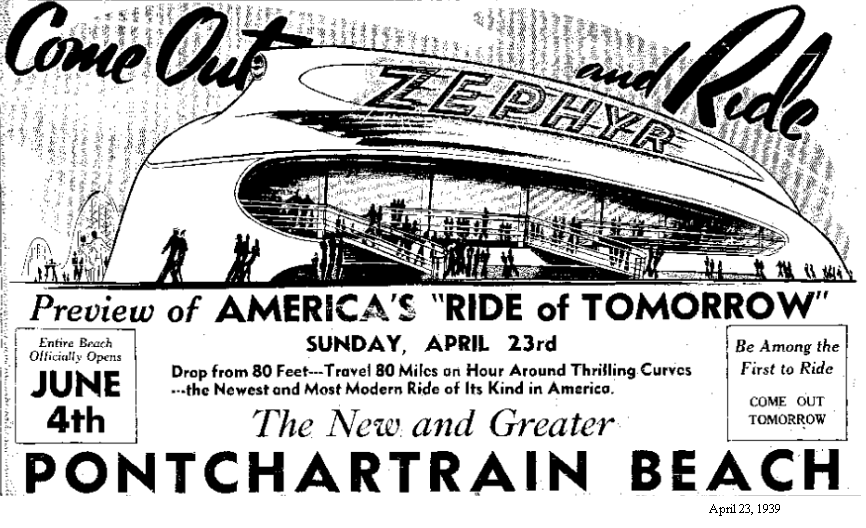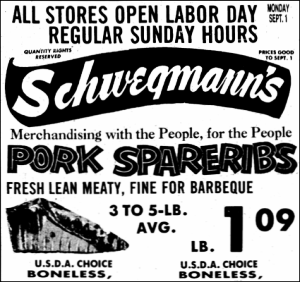
Glen D. Burke Dies
June 21, 1879
Glen D. Burke, born in Baltimore
on December 31, 1805, was the son of David Burke, a Baltimore shipping executive. He moved to New Orleans in 1826 and worked
for Abijah Fisk, a commission merchant in the coffee and sugar trade, at A. Fisk, Watt & Company (Fisk is often noted
for bbequeathing a house at Iberville and Bourbon Street for the purpose of building a free library there -- it is now the
location of Brennan's Bourbon House restaurant. He is also reputed to have introduced coffee to New Orleans during the
1830s). Around 1835, Burke bought Fisk's interest in the business and renamed it Burke, Watt & Company.
As a result of the Panic of 1837 (a national financial crisis which resulted in a major recession),
Burke fell into a $3 million debt, which he managed to settle around 1850. During the 1850s he made a second fortune via a
commission merchant house, banking interests, sugar and cotton plantations holding 1,000 slaves.
During the 1840s, he played a large role in the creation of the first public-school system in Louisiana,
serving on the city council of the Second Municipality, two terms in the state legislature, and during the federal occupation
of New Orleans as chairman of the bureau of finance under Mayor Hugh Kennedy. He was appointed a temporary mayor
of New Orleans for three weeks (June 8-June 28, 1865).
A side-wheel
packet steamer built by Howard Shipyards in Jeffersonville, Indiana and owned by the firm of Cobb and Nanlove in Vicksburg,
Mississippi was launched in 1851 and named the Glendy Burke. It sunk in 1855 near Cairo, Illinois. The ship is said
to have been named in honor of Glen D. Burke. In 1860, Stephen Foster published the song "The Glendy Burk --
A Plantation Melody", which became one of his most popular.
In financial
ruins again as a result of the Civil War, Burke died on June 21, 1879 and was interred
at the Girod Street Cemetery. His remains were later moved to Hope Mausoleum in St. John Cemetery.
You Can Support this Site by Clicking on & Shopping from this Amazon Link -- and it
won't cost you a penny more:


On June 21, 1971, the Garden District (bounded by Carondelet, Josephine,
and Magazine steets and Louisiana Avenue) was entered into the National Register of Historic Places.
On June 21, 1944, the Liberty ship Collin McKinney was launched by Delta Shipbuilding
Company.
On June 21, 1933, the first Great Lakes-to-Gulf of Mexico barge trip completed at New
Orleans.
BLANCHARD, Albert Gallatin, educator, soldier, engineer. Born, Charlestown, Mass., September 10,
1810. Education: graduated, United States Military Academy, West Point, 1829, twenty-sixth in a class of forty-six.
Served in Third U. S. Infantry Regiment on the frontier; promoted to rank of first lieutenant, October 30, 1836. Resigned
October 1, 1840. Removed to New Orleans and became a merchant and schoolteacher. Director of Louisiana's public
schools, 1843-1845. Organized and elected captain of an independent company of Louisiana volunteers, May 15, 1846,
and served in Mexican War. Appointed major, Twelfth U. S. Infantry, May 27, 1847; discharged honorably, July 25, 1848.
Returned to New Orleans and taught school until 1850. Worked as a civil engineer and railroad executive, 1854-1861.
Elected colonel, First Louisiana Infantry Regiment, April 25, 1861, and took his unit to Virginia. Promoted to rank
of brigadier general, September 21, 1861, and commanded a brigade at the Battle of Seven Pines, May 31 to June 1, 1862.
Assigned to command camp of conscription and instruction at Monroe, La., June 21, 1862. Relieved of command, February
11, 1863, and held no more important positions. Was in North Carolina toward the end of the war. Worked as a
surveyor and engineer, 1866-1870. Deputy surveyor for the city of New Orleans, 1870-1878. Became assistant city
surveyor, 1878, and served until his death. Died, New Orleans, June 21, 1891; interred St. Louis
Cemetery I. A.W.B. Sources: Ezra J. Warner, Generals in Gray … (1959); Mark M. Boatner, III, The
Civil War Dictionary (1959); Clement A. Evans, Confederate Military History (1899), Vol. X. From http://lahistory.org/site19.php
Gerald Stith was the 18th mayor of New Orleans, serving from June 21, 1858 until June
18, 1860.
On June 21, 1842, a city ordinance was established, imposing a fine on physicians and
undertakers for failure to furnish a certificate of death as provided for in Ordinance of the General Council of June 8th,
1841. Providing also that no one shall bury a corpse within the city limits except in the established cemeteries, and then
not without an undertaker's license or permit from the Mayor.









